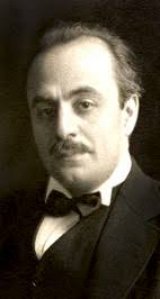List of poems by Kahlil Gibran 31 total
Sort:PopularA - ZChronologically
On Children | 4,779 Views added by halel 4 years ago | Rate it |
On Death | 3,588 Views added by halel 4 years ago | Rate it |
On Joy and Sorrow | 2,071 Views added by halel 4 years ago | Rate it |
Defeat | 1,646 Views added by halel 4 years ago | Rate it |
On Work | 1,306 Views added by halel 4 years ago | Rate it |
On Pain | 863 Views added by halel 4 years ago | Rate it |
On Good and Evil | 760 Views added by halel 4 years ago | Rate it |
On Houses | 607 Views added by halel 4 years ago | Rate it |
On Marriage | 560 Views added by halel 4 years ago | Rate it |
On Love | 530 Views added by halel 4 years ago | Rate it |
On Reason and Passion | 513 Views added by halel 4 years ago | Rate it |
On Friendship | 395 Views added by halel 4 years ago | Rate it |
On Giving | 363 Views added by halel 4 years ago | Rate it |
Love | 339 Views added by halel 4 years ago | Rate it |
On Freedom | 336 Views added by halel 4 years ago | Rate it |
On Teaching | 287 Views added by halel 4 years ago | Rate it |
On Laws | 270 Views added by halel 4 years ago | Rate it |
How I Became a Madman (Prologue) | 256 Views added by halel 4 years ago | Rate it |
The Farewell | 202 Views added by halel 4 years ago | Rate it |
On Pleasure | 181 Views added by halel 4 years ago | Rate it |
On Time | 162 Views added by halel 4 years ago | Rate it |
On Crime and Punishment | 160 Views added by halel 4 years ago | Rate it |
On Buying and Selling | 158 Views added by halel 4 years ago | Rate it |
On Beauty | 150 Views added by halel 4 years ago | Rate it |
On Clothes | 140 Views added by halel 4 years ago | Rate it |
Citation
Use the citation below to add this poet to your bibliography:
Style:MLAChicagoAPA
"Kahlil Gibran" Poetry.com. STANDS4 LLC, 2025. Web. 12 Mar. 2025. <https://www.poetry.com/poet/Kahlil+Gibran>.






Share your thoughts on Kahlil Gibran's poems with the community:
Report Comment
We're doing our best to make sure our content is useful, accurate and safe.
If by any chance you spot an inappropriate comment while navigating through our website please use this form to let us know, and we'll take care of it shortly.
Attachment
You need to be logged in to favorite.
Log In